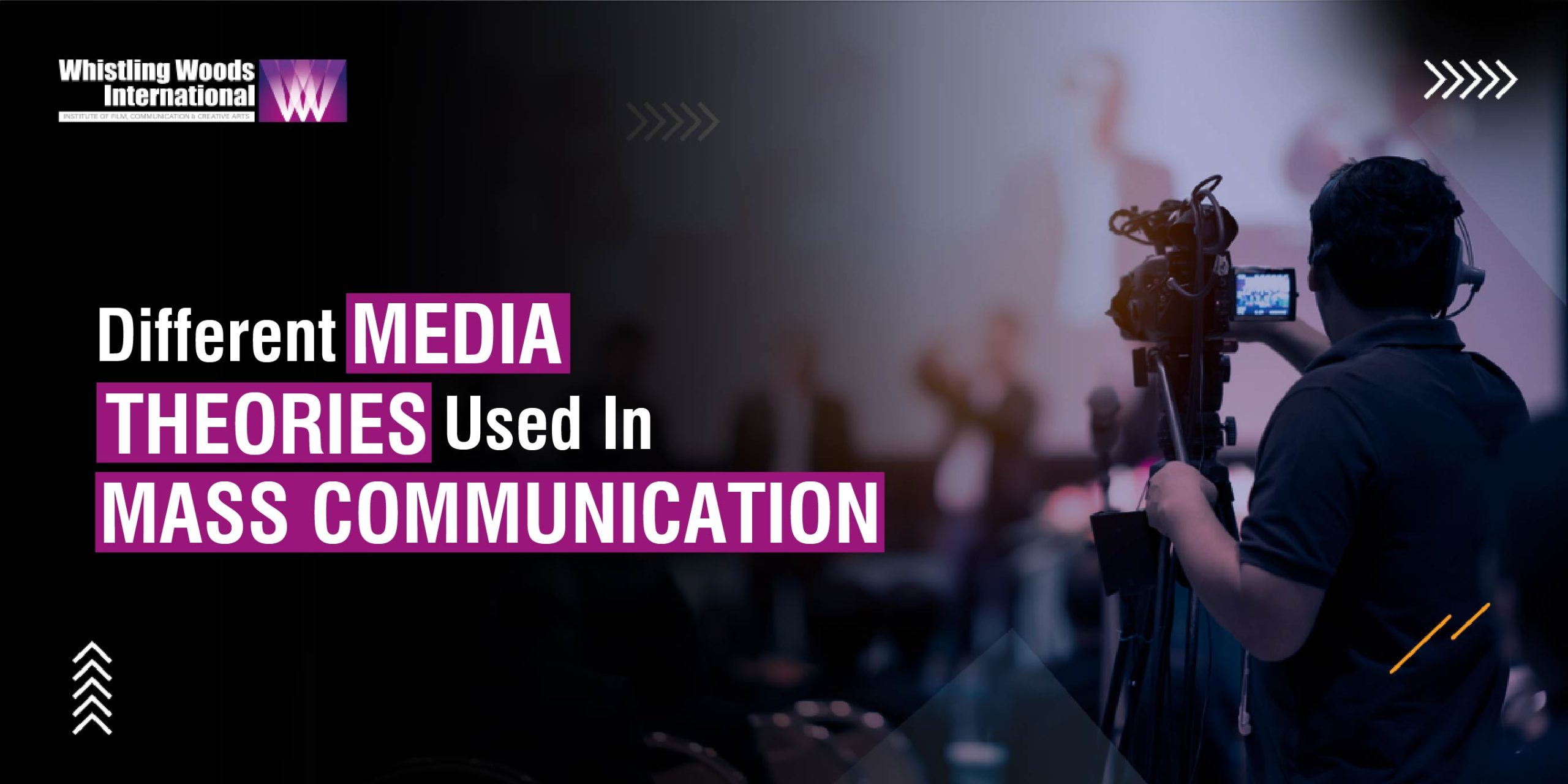Mass communication is both an art and a science that involves the creation, distribution, and reception of messages to a large and diverse audience. To excel in this field, it is essential to grasp the basics and develop a strong foundation.
There are hundreds of mass media theories and models proposed and examined by researchers. These theories cover a wide range of topics, from media effects to audience behaviour, media production, and more.
Researchers continue to refine and expand these theories of mass communication to better understand the evolving landscape of mass media and its impact on society.
In this blog, we delve into a selection of foundational mass theories that can serve as invaluable tools for advancing your career in the field of mass communication.
Why Are Media Theories Used In Mass Communication Important?
- Understanding Communication Processes: Media theories help us understand the fundamental processes of communication, including how messages are created, transmitted, received, and interpreted. They provide a framework for analysing and explaining the complex dynamics of mass communication.
- Predictive and Explanatory Power: Theories of mass communication offer models and concepts that can predict and explain how media content and messages influence individuals, society, and culture. By studying these theories, communication professionals can make more informed decisions about media content and its impact.
- Critical Analysis: They encourage critical thinking and analysis of media content and its effects. They provide tools for evaluating the quality and accuracy of information as well as the potential biases and influences that may shape media messages.
Theories Of Mass Communication:
The Two-Step Flow Theory
Originator: Paul Lazarsfeld and Elihu Katz
Usage: Out of the theories of mass communication the Two-Step Flow Theory suggests that information flows from mass media to opinion leaders and then to the general public. Opinion leaders act as intermediaries who interpret and disseminate media content to others. It has been useful in understanding how influential individuals shape public opinion and how information spreads through social networks.
Cultivation Theory
Originator: George Gerbner
Usage: Cultivation theory posits that long-term exposure to media content can shape an individual’s perceptions of reality. It has been used to explore how media can contribute to the formation of societal norms, beliefs, and fears, particularly in relation to violence and crime.
Agenda-Setting Theory
Originators: Maxwell McCombs and Donald Shaw
Usage: This theory argues that the media don’t tell people what to think, but they do tell people what to think about. It has been valuable for understanding how media can influence public opinion by emphasising certain issues and topics, thus setting the agenda for public discourse.
Check our recent article: Basic Cinematography & Film Tecniques for Better Cinematic Shots
Uses and Gratifications Theory
Originators: Elihu Katz and Jay Blumler
Usage: This theory examines why individuals use media and how they derive gratification from it. It has been employed to understand audience motivations and preferences, which is essential for media producers and marketers to create content that resonates with their target audience.
Social Cognitive Theory
Originator: Albert Bandura
Usage: Social cognitive theory emphasises the role of observational learning and social influence in shaping behaviour. In mass communication, it has been applied to explore how media can serve as models for behaviour and influence the development of attitudes, beliefs, and values among the audience.
These media theories used in mass communication offer valuable frameworks for understanding the dynamics of mass communication, media effects, and audience behaviours. Also, they continue in shaping the research and practice within the field.
Must Check: What Can You Do With A Degree in Media and Communication?
Excel The Media Theories With Whistling Wood International’s School Of Media Communication & Management
Elevate your understanding of fundamental mass media theories and ignite your career with Whistling Wood International’s School of Media Communication & Management.
WWI offers an environment where theories of mass communication meet practice, providing you with hands-on experiences and real-world applications. Our esteemed faculty and industry experts will guide you, ensuring you’re well-prepared to excel in the media and communication industry.
Whether you aspire to become a media professional, journalist, or communication strategist, our programmes are designed to equip you with the knowledge and skills needed for a successful career in this exciting field.
Courses offered by us:
Join us, and let your journey towards excellence begin!

